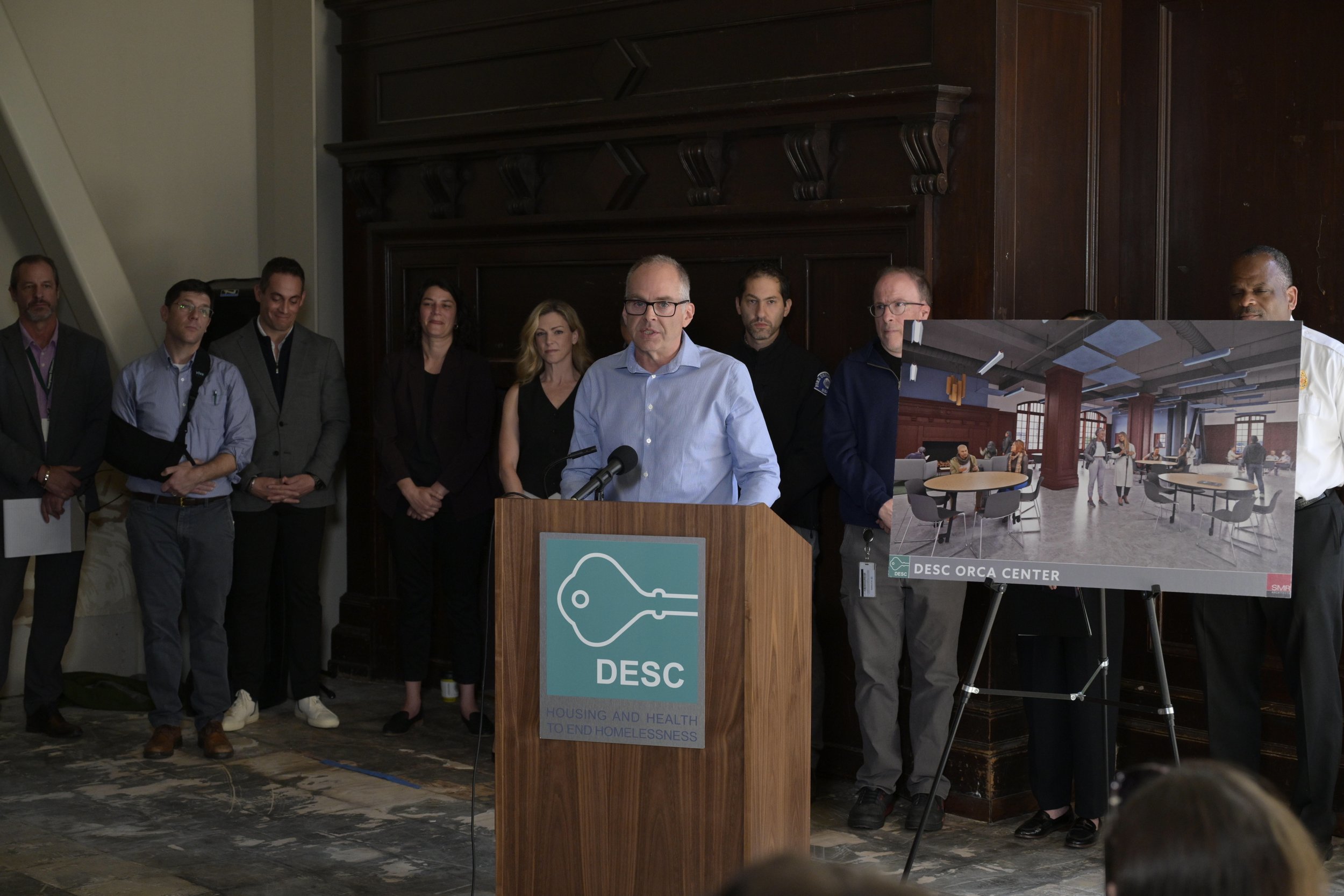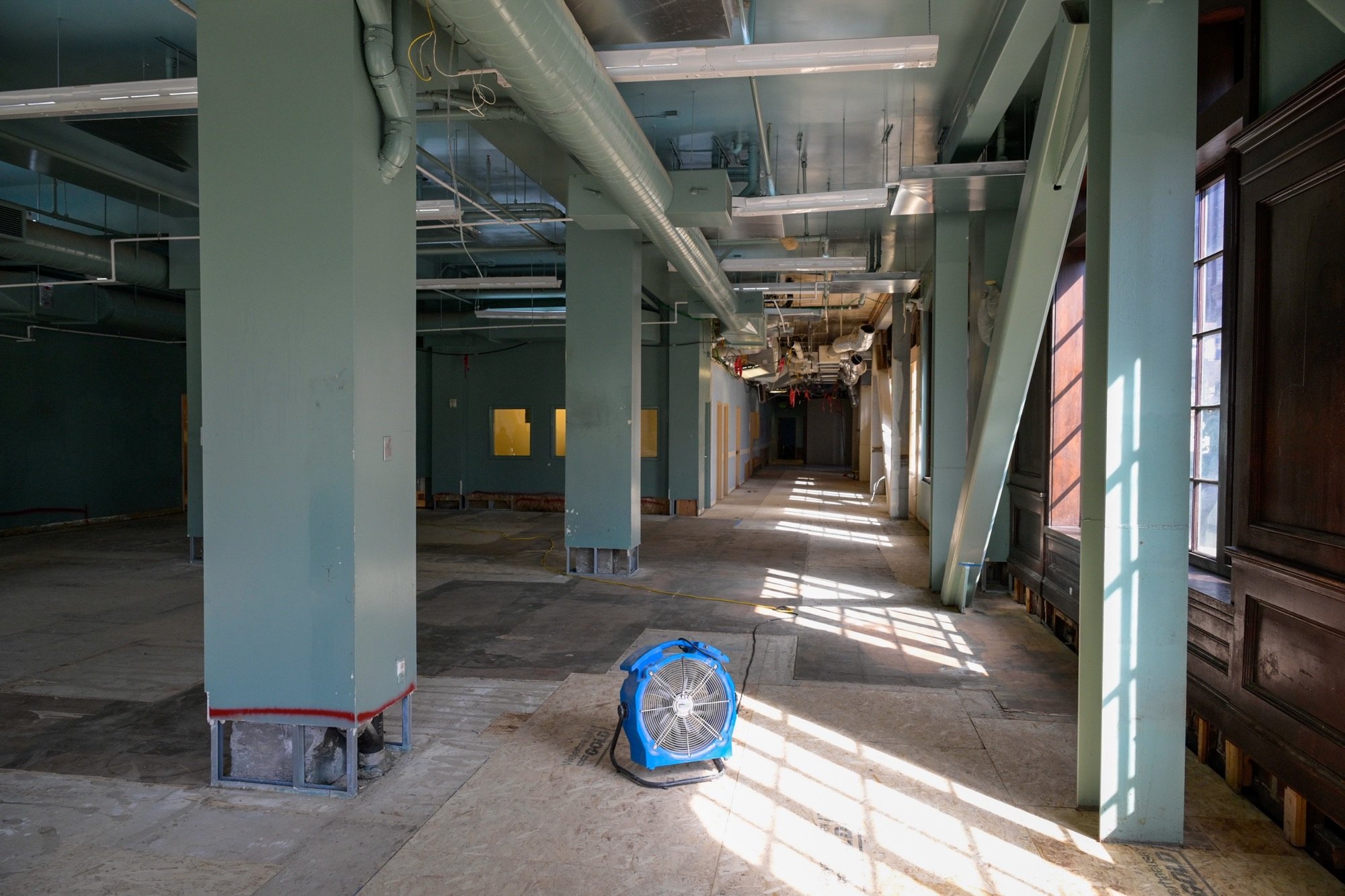Mayor Bruce Harrell Unveils Plans for Overdose Recovery Center to Combat Opioid Crisis
Seattle Mayor Bruce Harrell addresses media and partners at the Morrison Hotel building, announcing plans for a facility dedicated to supporting individuals in their recovery from post-drug overdoses (Photo - City of Seattle)
By Lorcan Stokes
On Thursday, May 9, Seattle Mayor Bruce Harrell announced plans to finance an initiative launched by the Downtown Emergency Service Center (DESC) to establish a facility dedicated to supporting individuals in their recovery from post-drug overdoses, particularly of fentanyl. The announcement occurred at the DESC Morrison Hotel building, poised to become the facility's future home, aptly named the Overdose Recovery and Care Access Center (ORCA).
"We are here to celebrate the awardees and the finalists of the city's $7 million investment in capital improvements for facilities providing post-overdose care and enhanced addiction treatment services," Harrel said.
Last year, there were over 1,000 overdose deaths in King County.
"Washington State led the nation and the percent increase in folks dying from drugs. A 40% increase in 2023 compared to 2022. In downtown, we had a 100% increase in calls to 911 for overdoses just in the three square miles of the 82 or so of our city, and 60% of all of the drug overdose deaths occurred in Seattle," Jon Scholes, CEO of the Downtown Seattle Association (DSA) explained. "So we need to adapt and adjust."
This allocation will see DESC receive $5.65 million as part of a broader $27 million investment from Harrell's Executive Order to combat the Opioid and Synthetic Drug Crisis in Seattle. This order is a cornerstone of the Downtown Activation Plan, a comprehensive blueprint for revitalizing Seattle by addressing various critical factors, including public safety. Additionally, Evergreen Treatment Services (ETS) is a finalist for an allocation of $1.35 million, which will go towards their projects and campus to provide further post-overdose support.
Various department officials and partners showcased the future vision for ORCA Center (Photo - City of Seattle)
"The conditions we see on our streets because of fentanyl require every level of government to step up and be involved in advancing urgent, compassionate, loving, and innovative solutions," Harrell said. "Simply, lives are at stake."
Harrel emphasized that upon its launch, the ORCA Center will collaborate closely with Seattle Fire Department Health 99 teams from the Mobile Integrated Health program, extending crucial support to individuals who have experienced non-fatal overdoses. Those needing extended medical attention will have access to comprehensive care at the facility for up to 23 consecutive hours. During this period, individuals can receive vital medications, such as buprenorphine and methadone, alongside connections to long-term treatment options.
"Once they're revived, if the person says,' Yes, I want to make a change,' Health 99 can now work with our paramedics, give buprenorphine in the field, and this will become a destination," Harold Scoggins, Seattle's Fire Chief, said. "This happens every single day in the community, and our Health 99 team is doing an amazing job in getting people right now to different places, but this will become a place where we can bring people every single day."
Dr. Caleb Banta-Green, Director of the UW Center for Community Engaged Drug Education Epidemiology and Research, underscored the importance of combining comprehensive care and supportive services to align with the community in fostering engagement with individuals aiming for recovery.
"We don't think we need to convince people to come here and talk them into coming here," Banta-Green said. "What we think is that if we offer a great place and the word starts to spread, people will want to come here."
Additionally, Stephen Woolworth, CEO of ETS, highlighted his organization's role in continuing support services beyond the 23-hour limit.
Established in 1908, Morrison Hotel has gone through changes over the years, having provided 190 studio apartments in DESC's largest permanent supportive housing facility. Now, the historic establishment will host of the ORCA facility as well (Photo - City of Seattle)
"Our campus will be a key component in the care pathway that starts here with the post-overdose stabilization center operated by our long-term partner DTSC," Woolworth said. "After 23 hours, participants will need to continue their treatment for opioid use disorder, and our campus will be uniquely positioned both geographically and clinically to be the next step in the care continuum."
In addition to their campus, ETS recently deployed their mobile methadone unit, which has already attracted a steady stream of individuals seeking support.
"At present, we're dispensing life-saving medication to 138 patients in downtown, 121 In Belltown, and 17 in Pioneer Square, a number we expect to steadily increase over the weeks and months ahead," Woolworth said.
While not confirmed, Daniel Malone, Executive Director of the DESC, stated that construction could begin as soon as September, with the center possibly opening in March of 2025.
"We've got some more work to do as a community about then where do they go, where are they going to stay if they don't have a place to live in those situations," Malone said. "That's a conversation for another time, but for right now, we're just delighted to be able to renovate this really cool space here in Pioneer Square and make for a new life-saving facility for people."



